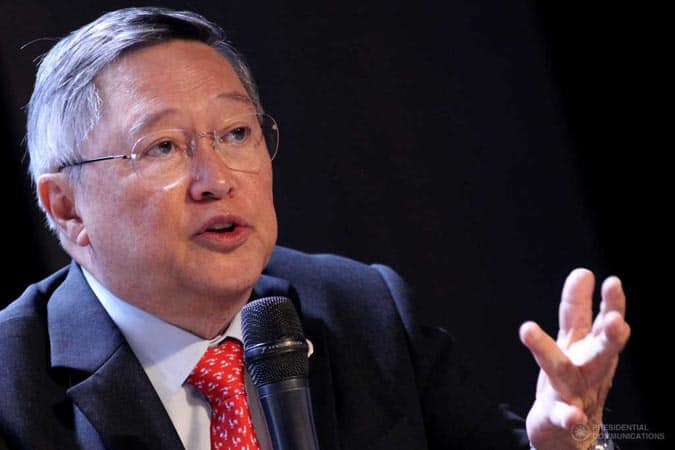

(C)BusinessWorld
Last updated on May 11th, 2021 at 09:10 am
Notwithstanding predictions of slower domestic growth in 2020 as the COVID-19 pandemic is taking its toll on the global economy, there is no stopping this year’s Philippines from rising to upper middle-income country status, the country’s lead economist said.
Pernia, who heads the National Economic and Development Authority (Neda) state planning agency, said an realistic 3-4 percent increase in gross national income (GNI) per capita this year would lift the per capita income of the Philippines above $3,956, which the World Bank classified as the upper middle income (up to $12,234).
Latest data on the World Bank’s website for multilateral lenders showed that in 2018 the Philippines had a $3,830 per capita GNI using the Atlas process.
The Philippines would have advanced to the upper middle-income level last year had it not been for the late budget approval that slowed the growth of gross domestic product (GDP) to an eight-year low of 5.9 per cent.
Read more: The government is targeting a faster 6.5-7.5 percent rise this year, even as Neda’s projections showed a possible 0.5-1 percentage point (ppt) decrease in GDP expansion if the COVID-19 pandemic lasted until mid-year.
Last week, for example, London-based Capital Economics cut its 2020 estimate of GDP growth to just 4.5 per cent.
When this year the Philippines becomes a top middle-income member, it will lose access to preferential interest rates that its bilateral partners and multilateral institutions currently enjoy on borrowings by 2022.
In view of this, the Philippines aims to obtain credit scores of “A” within the next two to three years so that it can proceed.
Last week, economic managers expressed faith that any growth slowdown due to COVID-19 will not impact the government’s target of slashing poverty incidence to 11 percent by 2022, from 16.6 percent in 2018.
Finance Secretary Carlos Dominguez III, after the meeting of the Economic Deve−lopment Group, pointed out that job losses in the tourism and manufacturing sectors would be temporary and short-term.
Since February, 66 mainly tourism-related companies and some manufacturers have temporarily closed or introduced flexible work arrangements as the COVID-19 pandemic has hindered the arrival of the tou-rist and postponed the release of quarantined raw material imports.
Owing to COVID-19, Neda’s projections showed possible job losses of 30 000-60 000 in the local tourism market.
Big investment company KKR is close to finishing its purchase of Japanese medical equipment manufacturer Topcon as private equity firms…
Indeed, it is, and it marks a milestone in medical research as it transpired that doctors in China successfully transplanted…
Many fans and industry professionals saw Prithviraj Sukumaran's L2 Empuraan movie release on Thursday as a mixed success that gained…
Filipina teenager Alexandra Eala, 19 year old girl has achieved one of the biggest milestones in WTA season by defeating…
After waiting for a solid six years, Marvel Studios has divulged its next Avengers movie—Avengers: Doomsday. And the cast is…
Through software update Nothing OS 3.1 the company improves functionality of Phone (3a) and Phone (3a) Pro models. Global service…
This website uses cookies.
Read More